
Fred Smith Jr.: News Releases and In the News


Smith: We’re in constitutional peril

Smith provides insights on landmark reverse discrimination case

Smith: Trump testing outer boundaries of the law

Smith breaks down impact of Chevron's fall, immunity ruling

Smith: Presidential immunity ruling doesn't apply to GA codefendants

Smith: Why the Supreme Court took up a transgender law case

Smith: How the SCOTUS Dobbs decision affects the presidential race

Smith on the subtext of McAfee's measured, lengthy ruling in Trump case

Smith: McAfee's ruling finds no evidence of actual conflict but the appearance of one

Smith on how allegations against Willis emboldened GOP critics

Smith on scope and pleas in GAG elections RICO case

Smith: Lawyers know advantages of pleading early

Smith: Plea deals get prosecutors closer to Trump's alleged crimes

Smith: Powell's plea agreement not surprising

Smith on gag order, proposal to sever trials for Trump codefendants

Smith: Cop City and Georgia's home rule doctrine

Smith: Cop City case could allow voters to challenge unpopular laws

Smith: Federal court ambiguity surrounds Cop City ballot initiative

Smith explains how Hatch Act applies to GA election case

Smith on uncharted territory and the insurrection clause

Smith: How speedy trials apply with multiple defendants, jurisdictions

Smith explains conditions of Trump's bond agreement

Smith: Be more discerning in granting Beltline tax breaks

Smith explains key differences in Georgia, federal RICO laws

Smith: Meadows' motion to dismiss conspiracy charges may be 'a steep climb'

Smith: Georgia RICO Act has lower threshold to establish pattern of criminality

Smith: Referendum on training center could transform voters' ability to influence policy

Smith explains grand jury process in GA Trump investigation
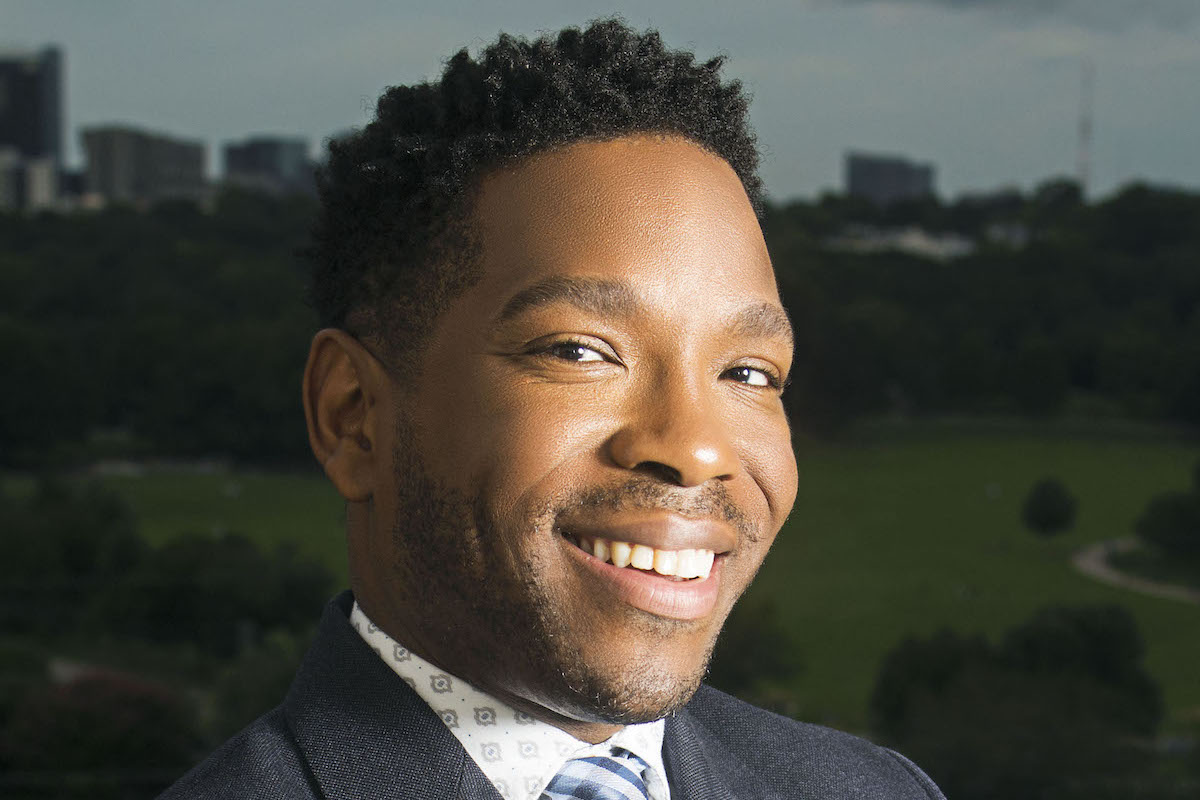
Cracking and packing Black voters: Alabama v. Milligan
In three consolidated lawsuits, Alabama voters are currently challenging the state’s most recently enacted Congressional map, arguing that it violates Section 2 of the Voting Rights Act.

Smith: Lower federal courts currently have more ethics rules than Supreme Court
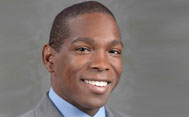
Smith: Why SCOTUS decisions are delayed

Smith comments on petition to put Cop City funding on ballot

Smith: Venue choice shows federal prosecutors' confidence in Trump charges

Smith: People want to know about political influence at SCOTUS

Smith discusses possible outcomes in Georgia Supreme Court abortion case

Smith explains high bar set for qualified immunity challenge

Smith: Creating separate white police force anti-democratic

Smith: Other state's rulings on abortion may influence Georgia's

Smith: DA's investigative powers may trump state legislative rules

Smith: Georgia’s fetus tax credit contains a lot of unknowns

Smith: Judge's abortion ruling aligns with Georgia's constitution

Smith comments on challenge to remove Confederate monument

Smith on SCOTUS and midterm elections

Smith: The legality of reducing student debt

Smith: Georgia's abortion law says fetus is a dependent

Smith explains potential damages in Sandy Hook defamation trial

Smith: Expect 'case-by-case' litigation of new Georgia abortion law

Smith: New heartbeat law will require Georgia to consider tax implications

Smith: What constitutes 'personhood' now goes to the state courts

Smith: For now, Georgia abortion law doesn’t affect Plan B contraception

Smith: Heartbeat law could see privacy challenge in GA Supreme Court

Smith: Dobbs will likely put Georgia heartbeat law in effect

Smith: SCOTUS gun case ruling will affect Georgia less

Smith: A SCOTUS draft is just that

Smith: Jackson's varied experience a boon for SCOTUS

Smith: Three things matter to SCOTUS

Smith explains law clerks' roles at SCOTUS

Smith: Prosecutors met burden to prove Arbery's murder a hate crime

Smith: How Georgia's Supreme Court avoids politicization

Smith: On Biden's promise to nominate a Black woman to Supreme Court

Smith: Our actions ensure the moral universe bends toward justice

Smith: Younger doctrine created de facto debtors’ prisons

Smith: SCOTUS ruling on California donor disclosure doesn't offer standard

Citing Bond case for Trump defense 'creative,' Smith says
Former president Donald Trump's attorneys have cited a Georgia case from the '60s to support their position that Trump's speech to a crowd, some of whom later attacked the U.S. Capitol, was protected by the First Amendment. In 1965, newly elected Georgia Rep. Julian Bond voiced an opinion opposing the Vietnam War. His House colleagues then refused to allow him to take his seat, but Bond later prevailed in a ruling by the U.S Supreme Court. Professor Fred Smith Jr. told 11 Alive that while creative, it does not necessarily support Trump's case for acquittal.

Smith: Will the current SCOTUS battle affect close races in Georgia?
Could the battle over replacing Justice Ruth Bader Ginsburg on the Supreme Court affect some tight Georgia races in this election? Professor Fred Smith Jr. joined a panel on "Political Rewind" to discuss specific races and cases that could sway how Georgia voters cast their ballots.

Smith: How defunding police would affect Georgia
"While polls show that the majority of Americans are now sympathetic to the Black Lives Matter movement, many are skeptical of calls to defund police,” say the hosts of Political Rewind. Associate Professor Fred Smith joined a panel that included a political writer, mayor, and a human rights attorney, to discuss what defunding the police would mean in Georgia.
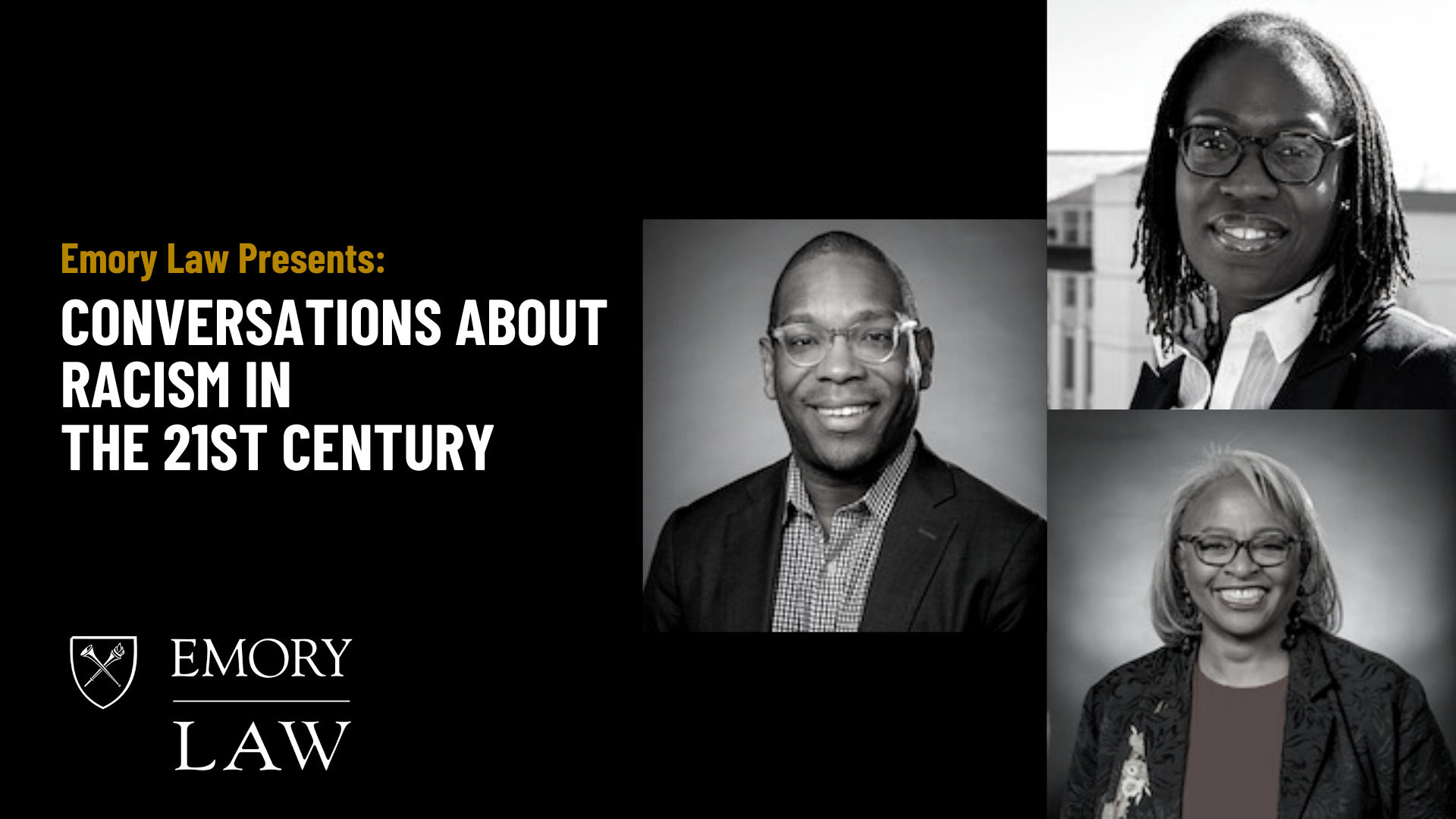
Emory Law hosts Conversations About 21st Century Racism series

Smith: Kemp chose ‘weakest case’ in lawsuit that challenges mask mandate
Associate Professor Fred Smith Jr. was invited to WABE’s "Political Rewind" to discuss Georgia Gov. Brian Kemp's executive order that says cities may not pass laws requiring the public to wear face coverings to prevent the spread of COVID-19. Kemp later said mask mandates were unenforceable and ineffective. "From a legal perspective, he picked literally the weakest case," Smith said.
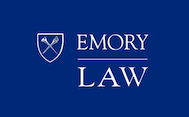
SCOTUS Analysis: Madison v. Alabama
Because the Eighth Amendment of the United States Constitution bans cruel and punishment, it places certain limits on whom may be executed, including the State may not execute a person who is so mentally incapacitated as to not have a rational understanding of the basic reasons for the execution, in light of Ford v. Wainwright, and Panetti v. Quarterman. This past term, in the case of Madison v. Alabama, the United States Supreme Court considered the scope of that limitation.

Smith comments on 'personhood' aspect of abortion law
State legislators have fielded calls and questions from residents concerned or confused about Georgia's new anti-abortion law, the AJC reports. HB 481 defines a "natural person" as "any human being including an unborn child." So legal experts need to consider mentions of "natural person" or "human being" in Georgia code to see what the implications might be, Emory Law Associate Professor Fred Smith Jr. says.
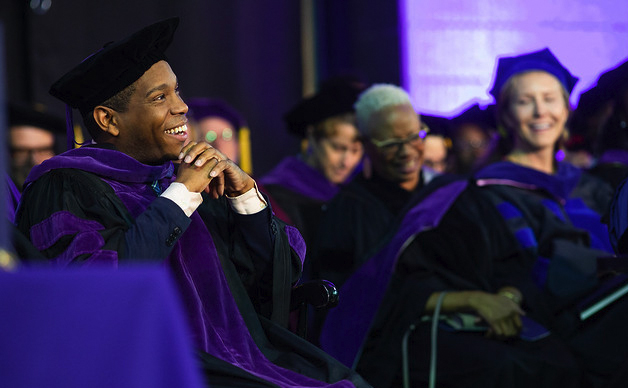
Prof. Fred Smith to graduates: Be part of seeing justice done
On Mother's Day, in a new venue and among a packed house of family and friends, 454 students crossed the stage in recognition of their graduation from Emory University School of Law.

Smith votes 'no' on Ga. aquarium tax break
Professor Fred Smith Jr. serves on the Invest Atlanta Board of Directors, and recently voted "no" on donating $7.5 million to the Georgia Aquarium, which plans an $108 million addition to feature sharks. "If we are going to give $7.5 million of taxpayer money, then the question becomes, "What are we getting that we wouldn't already get?," Smith said, according to the Atlanta Journal-Constitution. "This is going to happen regardless if we put in the $7.5 million, (so) that really doesn't work for me." The motion passed, 4-3.

Smith: How does a case arrive at the U.S. Supreme Court?
How does a case make its way to the highest court in the land? Associate Professor Fred Smith Jr. was interviewed for Georgia Public Broadcasting's "On Second Thought" show to answer that question. They started with a recent death penalty case, Foster v. Chatman, which originated in Georgia. The U.S. Supreme Court receives about 8,000 petitions for certiorari each year, but only about 80 are granted.

Smith in the Post: Constitution checks government power, not private entities
The NFL's announcement that players who do not stand for the national anthem could be fined highlights the clash of values over what defines equality and patriotism, Emory Law Associate Professor Fred Smith Jr. tells the Washington Post. "This is clearly a very fraught issue in the American political imagination," he said. "Generally speaking, I don't think people want to see large powerful entities, whether it be Facebook or anyone else, telling us what to think and what to say and how to say it. But the constitution is a protection against government power. And for private entities, like the country itself, it's a work in progress."

Free speech laws protect student's racist prom poster
Officials at a Florida high school where a student made a poster prom invitation that many found racist are considering disciplinary action, the Washington Post reports. Emory Law Associate Professor Fred Smith Jr. says the school may not have grounds, especially in light of the student wasn't on campus at the time. "Just like the rest of us, students have the ability to say things that are offensive. And the reason why we have free speech is to protect unpopular views," he said. "Given that he was off of the school campus, the mere fact that his speech was offensive would strike me as an insufficient basis for the school to punish him."

Smith: Hate speech is still free speech
The neo-Nazi group, the Nationalist Socialist Movement, will hold a rally in Newnan, Ga., on April 21, and many have objected to the city granting a permit for the event. Some say hate speech should not be protected. "The safe thing for a government actor to do is not to engage in any kind of content regulation," said Emory Law Associate Professor Fred Smith Jr. "Even when people are going to say something most people in the community would find odious, our constitutional tradition is that people absolutely nonetheless have to be able to say those things."
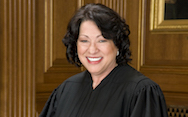
Daily Report: Sotomayor works the room at Emory
The late Justice William Brennan is said to have described the secret to success on the U.S. Supreme Court with five fingers outstretched. With five votes on a nine-member court, a justice could do anything, Jonathan Ringel writes for the Daily Report. Justice Sonia Sotomayor suggested a similar approach when she told a packed Emory University audience Tuesday how she handles harsh criticism of her opinions. Of colleagues who have occasionally blasted one of her positions, she said, "I could have strangled them, but I need their vote for the next case."

At Emory Law: A conversation with Justice Sotomayor
It's important for citizens to participate in the lawmaking process by lobbying for changes they want to see, U.S. Supreme Court Justice Sonia Sotomayor said Tuesday at Emory Law, during an appearance that included a conversation with her former law clerk, Professor Fred Smith Jr. "I believe with all my heart that unless we become engaged in our country and become active participants in making a difference in the world we're in, that we will be nothing but bystanders otherwise, and nobody should live their life being a bystander," she said.

Democrats should give Gorsuch a fair hearing, Smith says
Despite the fact they believe former President Obama was denied his right to appoint the next U.S. Supreme Court justice, Emory Law's Visiting Professor Fred Smith Jr. writes he hopes Democrats will not play tit for tat at confirmation hearings. "Judge Gorsuch is a brilliant jurist. And while I will likely often disagree with him on the rights of the accused, the right scope of extra-textual concepts like 'sovereign immunity,' or how broadly to understand statutes like the Religious Freedom Restoration Act, he should be treated with respect and receive a fair hearing," he says.

Smith: Affirmative action decision may further discussion on campus diversity
The Supreme Court's decision upholding the University of Texas' affirmative action program has little direct impact on Georgia public colleges--but Indirectly, it's likely to increase discussions about how to increase campus diversity, an Atlanta Journal-Constitution story says. "Today's opinion in some ways just upholds the status quo," said Visiting Professor of Law Fred Smith. "Whether public colleges in Georgia want to look at more ways to increase diversity is not so much a constitutional question, so much as a policy question."

Sovereign immunity may not apply in abortion law appeal, Smith tells WABE
The ACLU is challenging a ruling that shaved four weeks from Georgia's standards concerning abortion--from 24 to 20. The organization says it did not receive proper notice of an Oct. 30 decision in time to appeal. Sovereign immunity has protected the state from litigation previously, but may not this time, said Emory Law Visiting Professor Fred Smith Jr. A phrase in Georgia's constitution may prevent the principle from being applied in cases where a law's constitutionality is being questioned, he tells WABE.